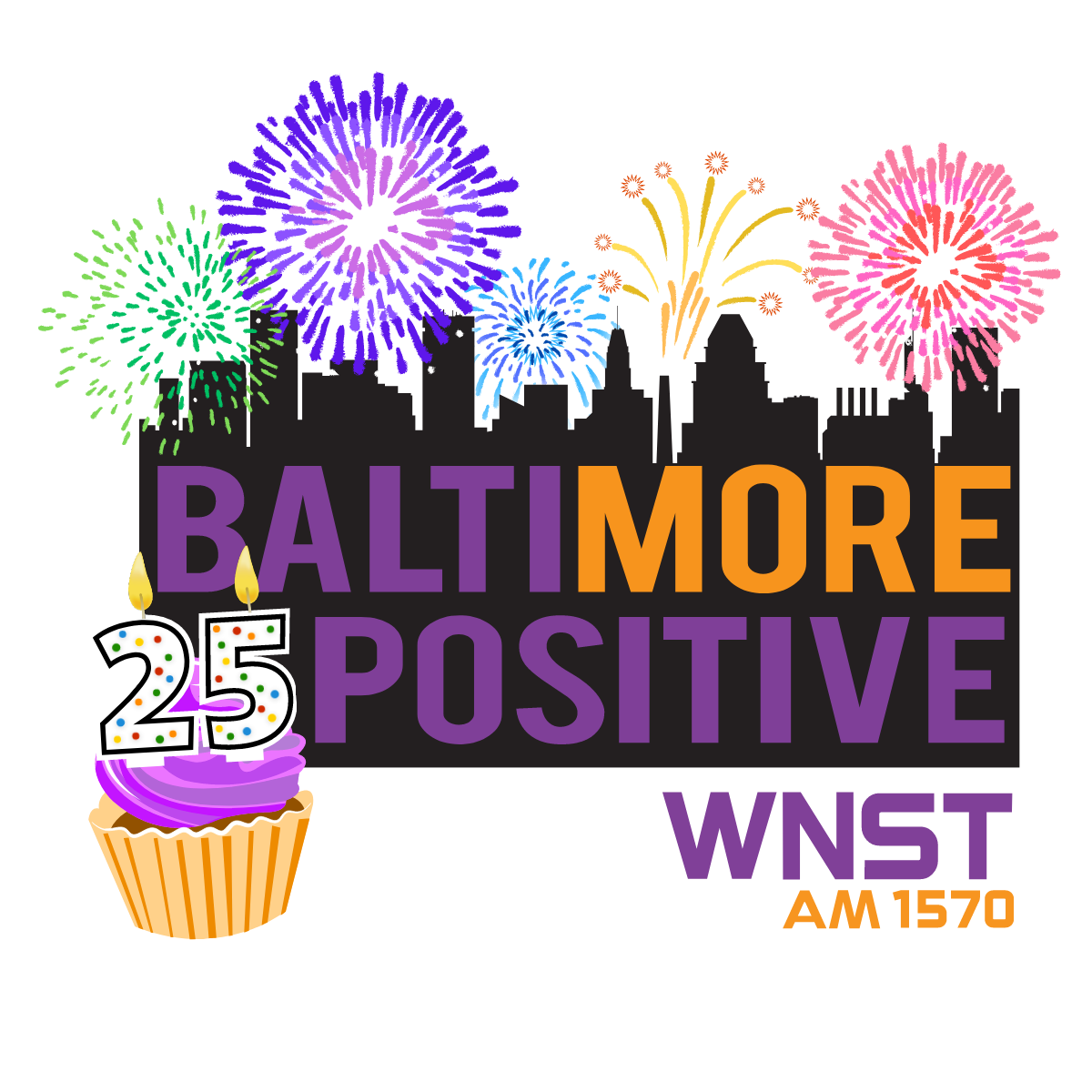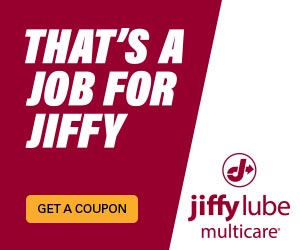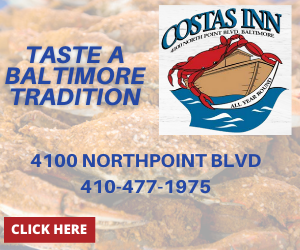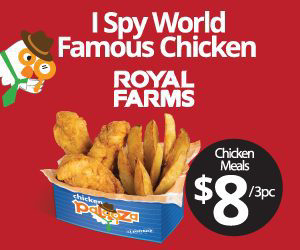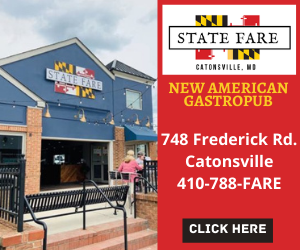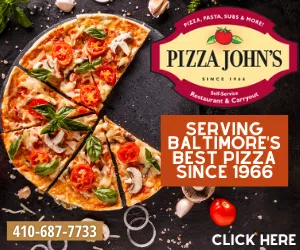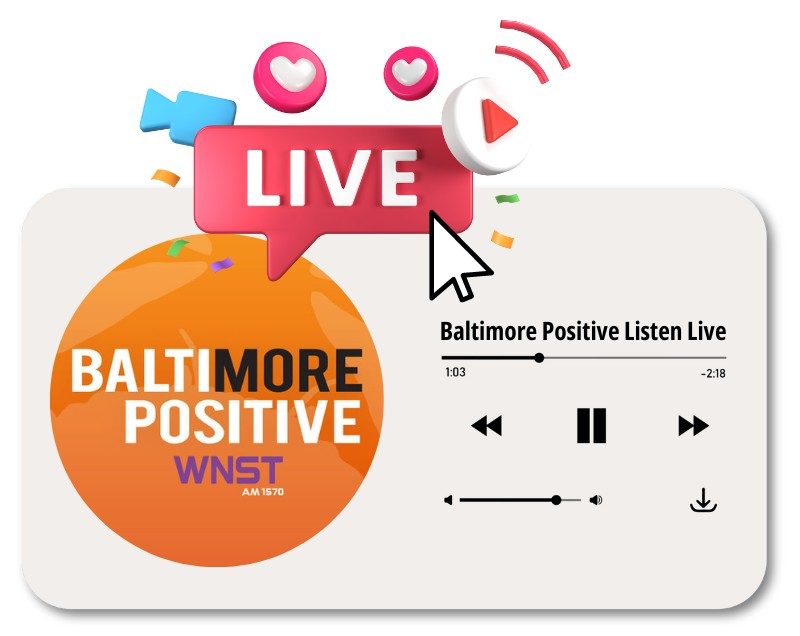Bill Cole and Nestor ask hard questions about a sensitive topic at State Fare in Catonsville on “A Cup Of Soup Or Bowl Week” for the Maryland Food Bank. Adam Rosenberg and the Center For Hope helping women and children heal from trauma and abuse tackles an issue we don’t talk enough about in public.
SUMMARY KEYWORDS
people, baltimore, violence, work, kids, abuse, sinai hospital, year, center, child abuse, child, canned goods, adam, impact, organization, health, murders, system, thought, chris shaffer
SPEAKERS
Nestor J. Aparicio, Bill Cole, Adam Rosenberg
Nestor J. Aparicio 00:01
Welcome back. We are live in Catonsville 21228. Where State Fair everybody’s enjoying themselves lunchtime and your place is packed. We will be your five o’clock people keep bringing canned goods. Bill calls anything we say to Susan out there who dropped off all months of Susan dropped off lemon cake. Susan, I know you’re driving a car right now you I saw you and you came in. And I mean, like people have that
Bill Cole 00:24
wonderful. Yeah, that’s wonderful. Thank you very much. Appreciate it.
Nestor J. Aparicio 00:28
Can I get a slice? Of course. So we’re going to we’re on day four this, my wife this morning says, I’m not making you breakfast today, you’re going to state fair, you’ll eat there. And then I get here it’s five and nine. And like, I haven’t eat of course, right. So every night I’ve been going home with food because like, most of my clients are Greek and they just said job and food. They can’t help themselves. So I’ve got like crab cakes, cream, spinach, all this stuff today. She’s like, you’re gonna miss a fair man, what do you bring it home and I’m like, I don’t know. But you know, meatloaf or something. Adam Rosenberg’s been my friend for a long time. He’s the Executive Director Center for hope. I knew him under a different name and a different way. But I’ve toured facilities, he’s done a lot, a lot of things here, for children and for helping people who need help the most common the most vulnerable times, you can find out all they do at Center for Hope find them through Lightbridge, he has been a close friend. And Bill, you give an introduction here, because I’ve known him a little. It’s small, it’s more I know him, you know him, we know him, we
Bill Cole 01:25
all know each other. I think my short summary for Adam is we got to know each other. And once you realize the type of work you’re doing, I am constantly trying to channel my inner support. So that you just feel that whenever, because I can’t imagine your days. And you know, like you just know that there’s these people behind you with their names on your back keeping you afloat. And
Adam Rosenberg 01:59
there’s great things we can do about it, we shouldn’t we shouldn’t let it defeat us, I think there’s a way to be able to overcome that. And anyone can overcome trauma with the right support system there. And it’s great to have support from guys like you and your listeners here who want to believe in make Baltimore a better place. What is
Nestor J. Aparicio 02:12
center for hope I got a whole book here. So I’m gonna have you get this down at about 16. So
Adam Rosenberg 02:17
center for Hope is a first of its kind violence response program in the nation. We’re working through LifeBridge health, and we’re taking a public health approach to all forms of violence, child abuse, domestic violence, elder abuse and exposure to gun violence there, we recognize that when someone has been impacted by violence, living with child abuse, witnessing a homicide, being a part of a domestic violence relationship, it impacts your health outcomes. And as a health system, our job and our desire is to keep people healthy, keep them out of the emergency room, and to give them healthier outcomes there. And so through our services, through our counseling, through our network of support, we’re able to turn that trajectory around for over 7000 people each year to prevent people from further future adverse experiences from violence.
Nestor J. Aparicio 02:58
So how do people come to you what’s the entryway and when you find them? What I will say typical, not
Adam Rosenberg 03:06
typical about this, people come to us through a lot of different ways that we’ve been, and we still are, what was the Baltimore child abuse center, the city’s child advocacy center. So if anybody reports abuse in Baltimore City, they work with police, they work with law enforcement and social services there. And then they come to us, for us to provide a coordinated investigation there, it takes someone to pick up the phone and dial 911 or child protective services to be able to report the abuse. But once that’s come in, we provide medical management. We provide a free therapy, we provide case management for those kids, people also come to us through our hospitals. So someone presents at Northwest Hospital, or the whole west side of Baltimore, with domestic violence, where their response team there and so we’re helping them get out of that domestic violence situation, find shelter, provide some free legal representation, provide care while they’re in the hospital. And then most excitingly, and really probably the biggest challenge of our career has been, we took on administration of six of the 10 cities, Safe Streets sites. And despite what you might hear on some media, it is a remarkable success program. So much so that our six Safe Streets sites, through over 900 community events and interventions, has been able to impact a 28% reduction in gunshot wound admissions at Sinai Hospital, fewer people are getting shot because our team is intervening and working with a lot of community partners there to make sure that people are living and not dying
Nestor J. Aparicio 04:29
moms and families to start the week. And you know, I think when I began this whole journey about Super Bowl, a cup of Super Bowl and I’m not going to be in Las Vegas, I’m only going to be talking about local issues. The one thing that came up real early on Monday was Hey man, less murders last year. That’s right. I mean we love talking about what is more and more and more and more in awfully crime and are harmed more and all the names they make up. But like we got to talk about that a lot. We got to say that
Adam Rosenberg 04:56
there is less crime in Baltimore there are fewer murders, there are fewer shoot things there. And I think it’s some of it’s a public perception thing. And it takes time that this past year has been a remarkable year. We see the Orioles over 100 games right and becoming a championship contender. We see the ravens and a championship run. And this is our championship run when it comes to ending violence in Baltimore. It takes years it does not happen overnight. And it’s through our work on the partnership of Catholic Charities and other organizations like Roca we are all here. Yeah. McCarthy, your Monday. We’re all in this well, I
Nestor J. Aparicio 05:25
hear a lot about Roca hear a lot about Safe Streets. What should people know about safe streets in a general sense, because it has been this maligned thing and the young man who was murdered last year that was one of the coordinators was a name on he was on my on my hitless to get get as a guest right, I tried to put guest together and say who’s making an impact. Next thing I know the kids murdered, and I’m like, Oh, my God. Yeah, like what’s going on?
Adam Rosenberg 05:48
These guys are heroes. I mean that police officers go out, they get benefits, they have a union, they have bulletproof vests, they have vehicles, they have cars, they go in there interceding and violence. These are guys who are looking to give back to their community who are credible messengers, who may have served their time, and have demonstrated that they are out to reform their neighborhoods there, and they’re getting between two people. And they’re saying, You know what, stop shooting, let’s find another way to resolve this. They’re they’re working within the community to get the resources for people who perhaps want a job, perhaps don’t want to be slinging drugs, perhaps don’t want to be involved in violence, to deter them to interrupt violence. And by taking a 30 year model called Cure Violence, where we’re taking the same approach we take to healthcare, that violence is something that can be cured. And so these teams are doing great work. And you know, what makes them aligned is the fact that yeah, we’re using people with previous histories there. And those are the people who have the most experience in this your drug counselors, they’re by and large peer recovery, people who’ve had their own addictions there. And so you we need to be working with people in the same vein, who have those lived experiences to be able to advocate for violence intervention.
Nestor J. Aparicio 06:51
Adam Rosenberg is here. He’s been to a good word for a long time. He’ll call for coal roofing and Gordy energy ride shotgun where state fair collecting canned goods for the Maryland Food Bank will be Pappas on Friday. Get here before five, you get a free cup of Super Bowl for your donations. And it’s going right to a local pantry here. We’re gonna meet them a little later on as well. You mentioned and I remember being in your place years ago, you talk about children being abused, sexually assaulted, you talk about. So Okay, kids getting beaten, the cops come, right, the cops come. And they’re like, Oh, my God, the wife and the husband and the child and we need to remove that child. Right? That’s when I think about you, you know that? What bill talks about this horror story that that’s all you do. I mean, that’s, that’s what comes to your door every day is that in some awful, it’s all awful. And then you have to unravel it and figure out what to do for that shot. I’ve done orphan today here at the children’s home. I’ve done you know, all sorts of stories this week about policing and things. You’ve experienced this so many times. And it’s the it’s something we’ll talk about somebody want to talk about. And you don’t want to
Adam Rosenberg 07:59
talk about along the lines of all these other ailments and illnesses that we all make efforts and do runs for whether it’s cancer or diabetes or heart disease, that child abuse is something that happens on a regular basis within our communities and can be stopped there. And you know, through education, through lessons to working with schools, to giving your youth serving organizations and your instructors the tools necessary to figure out what’s appropriate behavior, and what’s inappropriate behavior there, a lot of that you can get for free, by the way on our website at report abuse md.com. We have a free training there so you can learn how to recognize abuse and how to report it and how to prevent it from happening in the first place. Well, the former name of your organization we’ve been, we were the Baltimore child abuse center, Baltimore child, and that’s when I think about you. Sure, child abuse, not the bad way, but a good way. Center for Hope is the extension
Nestor J. Aparicio 08:45
of that
Adam Rosenberg 08:46
it’s the natural growth of it there. When I look I’m fortunate to be able to work for an organization like LifeBridge health and have a CEO like Neil Melcher, who truly we live them out of caring bravely, and that Neil saw the opportunity to use health systems to be able to impact and preventing child abuse. When we looked at our data, we had many kids who were going to end up at Sinai Hospital at Grace Medical Center one day if we didn’t do something there. And so Neil and the board at LifeBridge health invited us to join the organization. And that’s what evolved January 2019. Now, since right before the plague right before came right before a pandemic, which is stalled our launch and even through that pandemic, we launched on it for hope we brought all these violence programs together and most excitingly, we built a brand new building, the Joe Fox center for hope, right in the shadow of Pimlico, so it’s half a half a mile from Sinai Hospital to the gateway to Park Heights. And we have a brand new service facility center to be able to help 1000s of people each year who’ve been impacted by violence combined. So yeah,
Bill Cole 09:41
yeah, I just think that Adam for me, is that like boots on the ground? So like whatever you want to hear to your point, right, like less murders, like we hear all the stories. Adam always has a way of like really grounding the stories to tell you exactly what’s happening. When we talk About what’s missing, you know, like, how do we add the services? How do we roll this? Like, just the stuff? Like, how do you never even think about these things? Right? And then he tells you how they’re gonna think about right? And then I’m always blown away at sort of the holistic thought process that goes into, what do we do when this? When the novel One is called, or this person enters our sphere? How do we get them from the starting point of a rebuild, you know, to a good outcome? And what are
Nestor J. Aparicio 10:30
your success stories? I mean, you’ve had children come to you in the worst way. Do you see them isn’t nine year old, abused, and then come back as a 19 year old as a freshman in college, and you’re like, wow,
Adam Rosenberg 10:40
I’ve met that kid. I’ve met that nine year old who was a victim of abuse when I was a prosecutor many years ago and watch your back. I didn’t know that. Yeah, I started as a prosecutor and, honestly, yeah, well, I think it actually inspires me to be a problem. But it showed me and inspired me that I mean, we can use the systems in jail. That’s exactly right. But what it showed me also was that that the criminal justice system wasn’t the end all be all on it, that despite a guilty conviction, a sentence that there was still life to be repaired. And that’s where Baltimore tried to be Senator came in. And from my early days, everybody, right? Well, and if you punish them, it’s not going to make the kid better, right? It’s not going to solve that mother situation where the her her husband, her brother is in jail, and they need to get back on a path there rather than fall into further disrepair. And that’s what that’s where the child abuse center had come in there. And I’ve been working with them since 1997. Now Father, even though they beat the kid, and that’s part of a to find a way for almost reconciliation, because that guy is coming out of jail at some point, and he’s still the father. And so it’s so much more complicated than just a sentence, you’re gone. Because these are lives that are very intricately linked together there. And so
Nestor J. Aparicio 11:44
is that why you got this work? You got tired of being on that side thought I can. I
Adam Rosenberg 11:47
thought that was more I can do. And I was so inspired by how the bottom a child abuse center now center for hope can do things. And it just there’s so much more that was needed than just a conviction, very important part of the process there. Don’t get me wrong. Some of my best years are that but yeah, I’ve seen that success story where the work that we have and the impact that we have on these families. And they tell us that but for our help our services, our free counseling, or medical services, they wouldn’t be where they are today.
Nestor J. Aparicio 12:11
How can people help you? I mean, I think LifeBridge I think that, you know, that’s nice that you’ve been been funded in that way and been associated with this larger thing than I remember you sort of some weeks, I’m like, Oh, my God, a woman has been raped. The chalkboard? Yeah. And they walk in here, and their lives are torn apart, but you got to meet them, greet them, settle them heal them,
Adam Rosenberg 12:40
and we’re there for 30 days or three years. Right? Right, because homes aren’t saved for the happy house. So look, obviously the one that the real, the real cheap shot is if you can make a donation, you can go to LifeBridge, health.org, backslash hope, and you can go to our donate page there and you can make a donation there. Other ways you can help is if you know of a family that is in need of assistance, as asked them. Can I help you out there? I mean, I think we need to get back to to neighborhoods and community there. I think that if you’re in a school system in a school setting is making sure that you’re asking, you know, what are you doing to keep my kids safe? And if you’re running a school setting to think about and say, Hey, what are we doing to keep the kids safe? In our program? Are we training everybody who’s doing
Nestor J. Aparicio 13:18
kids and families safe community violence, intervention, addressing interpersonal violence, advocating against I’m reading page by page, collections, measuring hope, there we go.
Bill Cole 13:29
I want to just emphasize one thing that he said earlier, which I thought we kind of ran by really fast. The idea that a hospital system looked at a proactive way to limit the number of people that were coming in, by investing in the center for hope, like that is just you know, like, that’s a really different way of thinking we don’t
Nestor J. Aparicio 13:55
want to see kids that have been in
Adam Rosenberg 13:57
our emergency. We don’t want we don’t want to getting hurt at all. We don’t want them ending up in the emergency room. Here’s the long term impacts of that, too. Thank you for bringing that up is that when that child has been a victim of childhood abuse, childhood sexual abuse, childhood physical abuse, and they don’t get the help that they need? The preponderance, the rate of them becoming a future victim of violence increases the rate of them becoming a perpetrator. But even the other health impacts of their rate of possibly having cancer, diabetes, heart disease, other adverse things in life that happen because your body is still in that fight or flight mechanism there. And so it’s constantly it’s constant traumatic stress syndrome. And so it ends up making them unhealthier as they go forward there. And so we know as a health system, we want to keep you out of the emergency room. We want to keep you healthy, it’s what health care should be out there. And so yeah, it’s been really innovative for health system to make that kind of investment in us and help us catapult us on another level there and don’t get me wrong, folks. We still need your money that I think that just because we’re part of the health system doesn’t mean that you know it’s it’s a free check there that still rely on donors and people to make this thing happen. You
Bill Cole 14:59
said seven 1000 people Yeah, wait, what could the number be?
Adam Rosenberg 15:03
I mean, the number could be I mean, this, there’s so many more people 1000s Right, in our community. And I’m not getting help that I’ve got a remarkable team of mental health professionals who are trained in, in trauma, and they just completed a play therapy classes weekend, the most adorable thing I’ve ever seen. They’re they’re literally they’re, they’re making collages, and they’re playing with toys. But these are the tools that help kids recover from abuse there, but their docket is full, but they don’t have space within their case management system. To take another case. If I had another six therapists, we could help another another 800 people I mean, it’s incredible the way that this can stay at scale up if you have the people available to do it.
Nestor J. Aparicio 15:43
Adam Roseburg is trying to do that with Center for hope they’re right up by Pimlico. Hope your dresses Preakness way, that’s right, you know, so we got a horse race coming up here in May. Bill, anything we could
Bill Cole 15:56
do? I think that was great. Yeah, I mean, it’s about awareness. It’s you just got really like, people should just listen to that again, because there was so much stuff in there about community building, and how to take care of your neighbors. And like there’s a lot of good stuff we just hit at a really rapid pace. So
Adam Rosenberg 16:15
I moved no super good. builds a great example you to Nestor of like people saying, What can I do to help rather than turning your head and saying not my problem radio
Nestor J. Aparicio 16:23
guy, dude, right? Seriously? Right. But he’s a Baltimore guy, and I’m a Baltimore Ravens with him Orioles filled with him. You know, business leadership, we talked through all that stuff. But like, this was weak for me about like, breaking out my Jerry Lewis and saying, Alright, how do we build a better region, all these people, if I’m gonna get thrown out of doing radio row, I might as well sit here and have crabcake row, right? Whether it’s better here than it is in Vegas. We didn’t make this through bowling. And I thought, what are the stories that are impactful? And the people I met like you that, you know, it becomes a natural thing to have you here today? And it’s I’ve met some strangers and people I don’t know, or people I’ve met once or twice, but by and large, I know a lot of people doing a lot of good
Adam Rosenberg 17:04
ish here. Right? A lot of great things happen in Baltimore, and we’ll talk more about that show. Number
Nestor J. Aparicio 17:08
positives. All right. How about that? Yeah, go all right. We’ll talk some baseball. We got we got the rest of the summer to do that. We have to find a clock here to get donations for the Maryland Food Bank. We have a whole table full of stuff over here. Susan’s leaving canned goods and lemon cake was a lemon poppy seed. What was it? It’s gotta be alright, and we got who’s coming up next. We didn’t
Bill Cole 17:34
know. Structures, man. Yeah, thank you.
Nestor J. Aparicio 17:40
Chris Shaffer. I wanted to place the drums like Chris Yes, right. Now does the Hot Rod thing in the Christmas always skateboarding? Chris Shaffer couldn’t be here we’re gonna do Sharp Dressed Man, which is really something I’ve donated to so I’ve donated
Adam Rosenberg 17:53
clothes. Yeah. And I think that people got a fresh start they needed they needed a new jacket. They needed a suit. You know? Well,
Nestor J. Aparicio 17:58
you know, the original sharp dress. Anything you want. Everyone’s crazy about a stroke just man. Absolutely. All right letter Rascon couldn’t be here but he left me I call this to Richard share a gavel remember what you share. He’s up to square off. It is actually a crap mallet but the raskins in Maui right now. Breakfast time right now.
Bill Cole 18:18
That’s not cool. Yeah, well
Nestor J. Aparicio 18:20
certainly the anniversary he’s allowed to he’s gonna take care of his money to take care of yours as well. By the way I didn’t even did I hope for you that I give you one. Oh no. 10 times the cash from America lottery. There are sponsors. They put this thing on with window nation. 866 90 Nation. I’m getting doors. They do windows. I have a wacky hat. I’m gonna put it on just for fun. It also has this tab that hangs out of it like spaghetti. Also Jiffy Lube, but multi care taking good care of us. We’re gonna be state fair to five. We’re gonna be at Pappas and Cockeysville all day tomorrow. My wife thought I was gonna lose my voice already. Slim. Let’s see 24 and 529 hours into this grueling event coming to the zoo. For me, I’m coming back for more Kingsville right after this
